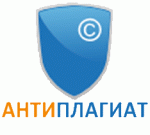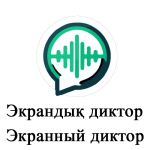2015 year
2014 year
RESEARCH PROJECTS
Licenses
Valid licenses
Previously obtained licenses
| License card | ||||
 Appendix to license.pdf Appendix to license.pdf |
||||
 Appendix to license.pdf Appendix to license.pdf |
||||
|
Representative offices from 08.12.2001
|
Internal academic mobility

WHAT IS ACADEMIC MOBILITY?
Academic mobility is the transfer of students or research teachers for a certain academic period (including completing an educational or practical training), usually a semester or academic year, to another higher educational institution (domestically or abroad) for study or research, with compulsory re-enrollment of completed educational programs in the form of loans at your university.
There is external (international) and internal (national) academic mobility.
External academic mobility is the training of students in foreign universities, as well as the work of teachers and researchers in foreign educational or scientific institutions.
Internal academic mobility is the training of students, as well as the work of research teachers in leading Kazakhstani universities.
Internal (intra-Kazakhstan) academic mobility is the transfer of students, research teachers or conducting research for a certain academic period, a semester, or academic year, to another higher educational institution of Kazakhstan with the obligatory transfer of completed educational programs in the form of loans in your university or to continue studies in another high school.
What documents are required to participate in the internal academic mobility program?
On internal academic mobility, documents are prepared taking into account the requests of the inviting party. Mandatory documents are:
1) Student's statement;
2) Student’s agreement;
4) Tripartite agreement;
5) Letter of recommendation (signed by the dean, head of department, curator);
6) Transcript;
7) Individual curriculum ;
8) Medical certificate (form No. 086U);
9) 2 copies of identity card;
10) 2 photos (size 3 * 4);
11) 2 files.
For academic mobility please contact:
- External academic mobility -
Center for International Programs and Projects
Elena Shukusheva,
room 268, tel. 44-16-34 (ext. 141).
- Internal academic mobility - Department of Academic Development
Ukubaeva Alfiya, room 391, tel. 44-16-34 (ext. 138).
PROJECT 561603-EPP-1-2015-1-DE-EPPKA2-CBHE-JP ESTABLISHMENT OF CENTERS FOR COMPETENCE AND EMPLOYABILITY DEVELOPMENT (Complete)
|
|
|
|
Wider objective The aim of the project is to sensitise, enhance and foster the employability of individuals according to the requirements of Bologna post 2010 Specific project objectives - Installation of an appropriate competence model into PC HEI which is congruent with country specifics like economic, social/culture and labour market aspects identified in the analysis Project outputs According to the specific project objectives the following tangible outputs and intangible outcomes in the frames of development are planned: Project partners Organisation name City, Country
The content of these materials is the responsibility of the authors and does not reflect the views of the European Commission. The Commission is not responsible for any use of the materials presented in this publication |
|
Coordination board for scienc
WORK PLAN FOR THE COORDINATING COUNCIL ON SCIENCE KARAGANDA ECONOMIC UNIVERSITY FOR THE FIRST SEMESTER 2017-2018 ACADEMIC YEAR
|
№ |
The agenda of the meetings |
Dates
|
Responsible
|
|
1. |
Approval of the composition |
October
2017 |
Nakipova G.E. |
|
1.1 |
Fulfillment of action plans for |
Khanov T.A, Taubayev A.A. |
|
|
1.2 |
Discussion of proposals on the |
Nakipova G.E. |
|
|
1.3 |
Formation of a plan for activities |
Феткулов А.Х. |
|
|
1.4 |
Discussion of the timing of major |
Nakipova G.E., Khanov T.A, heads of departments |
|
|
2. |
Summing up the results of grant, |
November
2017 |
Nakipova G.E., Taubayev A.A. heads of departments |
|
2.1 |
Discussion of the deadlines for |
Nakipova G.E., Khanov T.A. |
|
|
2.2 |
Estimates of expenses for research |
Nakipova G.E. |
|
|
3. |
Discussion of the report on research |
January
2018 |
Nakipova G.E., Khanov T.A, Taubayev A.A. heads of departments |
|
3.1 |
Consideration of plans for research |
Khanov T.A. heads of departments |
|
|
3.2 |
On the results of pedagogical |
Director of the Department of Postgraduate Education,
chief specialis heads of departments |
COORDINATING COUNCIL COMPOSITION
|
|
First name, |
Position, subdivision |
|
Sihimbaev M.R. |
acting vice-rector for research, strategic and innovative development |
|
|
Hanov T.A. |
– director of the scientific research institute of economics and legal studies |
|
|
Taubaev A.A. |
– director of the monitoring centre and the development of research work |
|
|
Abdakimova M.K. |
– head of the department of social work and social and political disciplines |
|
|
Abenova S.T. |
– head of department of international economics and international relations |
|
|
Au T.I. |
– head of the department of common legal and social disciplines |
|
|
Baikenov G.G. |
– head of the department of ecology and evaluation |
|
|
Veselska N.R. |
– head of the department of legal regulation of economic relations |
|
|
Dauletova A.M. |
– head of the department of marketing and logistics |
|
|
Emelina N.K. |
– head of the department of higher mathematics |
|
|
Ertysbayev G.N. |
– head of the department of foreign and russian languages |
|
|
Esenbaeva G.A. |
– head of the department of commodity and certification |
|
|
Zhetpisbayeva M.K. |
– head of the of department economic theory and state and municipal management |
|
|
Kabataeva K.T. |
– head of the department of kazakh language and culture of Kazakhstan |
|
|
Madieva K.S. |
– head of the department of accounting and auditing |
|
|
Musataeva A.A. |
– head of the department of economics and management |
|
|
Mataeva B.T. |
– head of the department of tourism and restaurant business |
|
|
Omarova SH.E. |
– head of the department of information computer systems |
|
|
Sembekov A.K |
– head of the department of finance, tax and insurance |
|
|
Talimova L.A. |
– head of the department of banking |
|
|
Ligostaeva A.A. |
– director of the department of postgraduate and further education |
|
|
Ten T.L. |
– programs coordinator USCO |
|
|
Bokenchin K.K. |
– chairman of the council of young scientists |
|
|
Syzdyk B.K. |
– responsible for SRWS university |
|
|
Grishina E.A. |
– board secretary |
Ratings
LEADERS OF FACULTY
 |
Acting Dean Faculty of Distance Learning |
Schedule of admission of students of the faculty of distance learning
Schedule of admission of students of the faculty of distance learning
Dean of the faculty Borbasova Ziyada Nazibekovna
|
Days of the week |
Time |
Major |
|
Monday |
09.00-17.00 (in addition to the scheduled time of classes) |
All the majors |
|
Tuesday |
09.00-17.00 (in addition to the scheduled time of classes) |
All the majors |
|
Wednesday |
09.00-17.00 (in addition to the scheduled time of classes) |
All the majors |
|
Thursday |
09.00-17.00 (in addition to the scheduled time of classes) |
All the majors |
|
Friday |
09.00-17.00 (in addition to the scheduled time of classes) |
All the majors |
|
Sunday |
09.00-12.00 (in addition to the scheduled time of classes) |
All the majors |
Kurmanalina Anar Kayratovna


 License 2019 + application (rus).pdf
License 2019 + application (rus).pdf
 Appendix to the license dated 08.12.2001г
Appendix to the license dated 08.12.2001г










